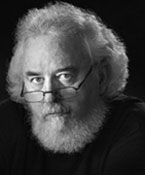On Black Swan Wings: My Copy of Nassim Nicholas Taleb’s Book Got Me a Free Upgrade on a Flight from Tampa to Chicago
I’ve probably shared this universal “rule of thumb” with my readers more than once: The world is divided into people who divide the world into twos and those who don’t.
And now there’s this one: The world is divided into people who know what a “black swan event” is and those who are clueless. Judged by the number of people who have worked the phrase into their public pronouncements, the Society of the Black Swan is spreading faster than a wickedly clever (or cleverly wicked) tweet.
I just googled “black swan” and came up (in 0.27 seconds) with 10,100,000 hits. There may not have been a more popular catchphrase since “bird in the hand” (32,400,000 hits), “gift horse” (28,900,000 hits), “elephant in the room” (19,000,000 hits) and “bad penny” (13,200,000 hits).
Let me illustrate the drawing power of “black swan” by describing something that has never happened to me before and that, frankly, I never expect to happen again. I don’t know yet if it was a black swan event for me personally, but it certainly fulfilled the first of the three requirements for being one. That is, it was a surprise to the observers (that would include me, a poker-faced flight attendant on United Airlines Flight 569 from Tampa to Chicago and about two rows of passengers forward of the row containing seat 13C and about four rows of passengers to the rear).
The value of carrying a trendy book
As Flight 569 was about to pull away from the gate, I noticed that two seats in the row in front of me were unoccupied. It used to be that the airline seldom objected to someone slipping into an unused space. But in today’s cutthroat skies, no sooner had I plopped down in one of the vacant seats than a stern-faced flight attendant was at my elbow demanding an additional $39 for the extra legroom on that row.
I demurred and returned to my original seat. The plane took off, I settled in, closed my eyes and was close to falling asleep. Suddenly, the second (poker-faced) flight attendant shook my shoulder firmly. “This gentleman,” she said, pointing to the lone occupant of the row I had just attempted to crash, “has paid for your upgrade.”
He was a pleasant-looking, middle-aged fellow who looked like he probably knew his way around a tennis court. “What’s this all about?” I asked. He gestured at the copy of Nassim Nicholas Taleb’s The Black Swan: The Impact of the Highly Improbable that I’d brought along to read. “You just looked like an interesting guy,” he shrugged. He was head of the economics department at one of the Chicago area’s elite, small liberal arts colleagues. And a world-traveled expert on the financial impact of big sporting events and the financing of public sports arenas, among other things. We had a wonderful chat flying to Chicago. One of the things we talked about was black swan events.
1 out of 3 may get you a $39 upgrade
I’m going to assume that there probably isn’t a single person reading this blog item who has yet to hear the name “Nassim Nicholas Taleb” or who has not heard of his latest book. (If you haven’t, that’s okay, very Taleb-like, in fact, in that the “highly improbable” seems to be getting more and more—well—probable these days. Just go to Wikipedia and get up to speed.) The rest of my readers will likely understand when I observe that the reason I doubt that my getting an unexpected $39 upgrade from another passenger on Flight 569 will actually turn out to be a black swan event for me personally is that the other two criteria that Taleb requires for a genuine Black Swan are missing. Namely—
The event has a major impact.
After the fact, the event is rationalized by hindsight, as if it had been expected.
To which I will rejoin that one out of three isn’t a bad start. Certainly, my upgrade by a stranger who wanted to chat with me on a flight to Chicago was unexpected and thus met black-swan-event-criteria No. 1:
The event is a surprise (to the observer).
Taleb is—what?—an intellectual swashbuckler? He’s a former Wall Street hedge fund manager and now a professor who thinks nearly all Wall Street traders, bank risk managers and economists are, plainly, posers and idiots. But then he also places most users of statistical methods professionally, including academicians, physicians, philosophers and government financial regulators, in that category. This middle-aged Lebanese-born curmudgeon derisively calls them “quants” (as in quantitative users of mathematics to try to predict how the world, and especially, the world of finance, works) and he’s at war with them because they keep trying to predict things that, or so Taleb says, turn out to be black swan events and thus are not predictable.
Sometimes, Black Swans are positive, but the ones we remember most may not be. In his book, first published in 2007, Taleb lumps together such events as the rise of the Internet, the personal computer, World War I and 9/11 as being Black Swans. To that list, the argument can be made (and it isn’t always clear that Taleb’s required triplet of rarity, extreme impact and retrospective predictability has been satisfied) that the Indian Ocean tsunami, hurricane Katrina, the Haiti earthquake, the Eyjafjallajoekull volcano eruption and the BP oil spill not to mention the Lehman Brothers bankruptcy, the sub-prime mortgage crisis and late-2000s recession and the now unfolding European sovereign debt crisis should be added to the list.
An explanation for “just about everything”
Taleb apparently wants black swan event status more judiciously applied but welcomes a full appreciation for the role that such events have played on the development of humans and their civilizations. In an interview with The New York Times, he argued, “A small number of Black Swans explain almost everything in our world, from the success of ideas and religions, to the dynamics of historical events, to elements of our own personal lives.”
As the planet’s population keeps adding billions, more and more people are destined to find themselves unexpectedly thrown into the path of the highly improbable. Thus Taleb has staked out a growth industry that he currently has almost all to himself. Overthrowing the rule of the “quants” is going to require a full-scale paradigm shift (which will probably, in retrospect, turn out to be a Black Swan!). As financial reformers in the Obama Administration and the Congress have discovered, there’s simply too much power to be challenged and too much money to be made by people who claim to know how to predict and control the future.
Hopefully, Taleb has only just begun. Now that he’s riveted the attention of people (like my pro-active seatmate on Flight 569) on the importance of paying attention to unexpected events of large magnitude and impact, he needs to take his genius, impatience with the status quo and his salty joie de vivre on to the next, next challenge: helping humanity find better ways to prepare for what it can’t see coming.
The reigning black swan expert is …
And Taleb appears to be headed that way. A 2nd (paperback) edition of The Black Swan was released earlier this week by Taleb’s publisher. It contains (or so Taleb himself claims on his website) about 100 new pages on robustness and fragility. I’ve only read an excerpt. But it is clear that Taleb has been doing a lot of thinking about how best to merge skepticism and decision-making in the real world. He’s gone looking for clues in how other complex systems have managed to deal with black swan events and survive. And what he’s found in Mother Nature has blown him away.
He writes on the newest pages of his book:
“Mother Nature is clearly a complex system, with webs of interdependence, nonlinearities, and a robust ecology (otherwise it would have blown up a long time ago). It is an old, very old person with an impeccable memory. Mother Nature does not develop Alzheimer’s—actually there is evidence that even humans would not easily lose brain function with age if they followed a regimen of stochastic exercise and stochastic fasting, took long walks, avoided sugar, bread, white rice, and stock market investments,
and refrained from taking economics classes or reading such things as The New York Times.
“Let me summarize my ideas about how Mother Nature deals with the
Black Swan, both positive and negative—it knows much better than humans
how to take advantage of positive Black Swans. First, Mother Nature likes redundancies, three different types of redundancies.”
And he’s off and running.
With Nassim Nicholas Taleb, it is always likely to be a wild ride, except when you are having a leisurely chat about his provocative claims and discoveries on your flight from Tampa to Chicago. Then it may turn out to be merely a pleasant surprise.


